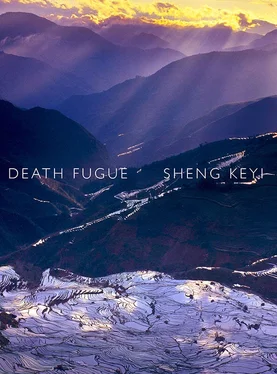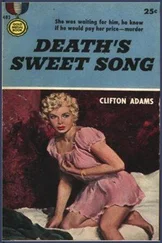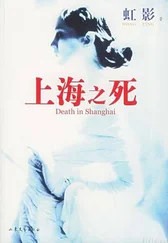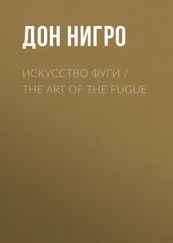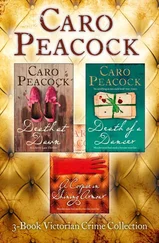They discussed the soul and death, the spirit and its ideals. This was their version of small talk.
The raccoon-like child raised the question of the immortality of the soul. No one treated him like a child, and his question was taken seriously.
‘God started with the body and breath. When he put these two elements together, the soul came into existence. When a person dies, the spirit goes back to God, and the body to dust. The Bible never records anywhere that the soul lives on after leaving the body and walks about here and there. The soul or spirit cannot exist apart from God’s living power in the body,’ the man who looked like a reverend said.
The small fellow didn’t even blink as he looked at the speaker, thought for a moment, then said, ‘Suppose I have boards and nails, and I hammer the nails into the boards and make a box. I have three things — boards, nails and a box. If I take the nails out, I’ll only have boards and nails again. The box will be gone because the box only exists when the nails and boards have been brought together.’
The raccoon glanced at Esteban as if looking for encouragement or expecting praise, then carefully concluded, ‘The soul is a box.’
‘The soul is indeed a box,’ Esteban said, nodding in agreement. He commented that Shanlai would be a distinguished philosopher in the future then, changing the subject, said, ‘Now let us listen to the great poet’s thoughts.’
He turned to Mengliu and said graciously, ‘Mr Yuan, Buddhism teaches that there is reincarnation. What is your belief about life and death?’
Mengliu did not believe in reincarnation, but he could not deny that life was indeed a misery, and that both rich and poor endured suffering. When the mind became derailed, ideals vanished, then the spirit became an empty box, and no amount of talk could fill up this gigantic void. He did not want to lose face, so he began with the caution of a surgeon in an operating theatre.
‘Where there is life, there must be death. The Chinese philosopher Laozi says that every person must walk the path of life before he can attain immortality. Some people cling tightly to life, and they fear death. Sometimes, the value of life is to be found precisely in death. For some, beliefs are more important than life, and ideals greater than any individual. There’s an idiom, Some things are worth dying for. For example, there’s justice, enlightenment, democracy, freedom, and so on. That would be the best way to understand life and death…’
Mengliu had begun with an attitude of diplomatic sincerity, but as he spoke, numerous English terms welled up in his mind. They were like a red-hot iron poking into his bloodstream, and making his whole body feverish. ‘Because of justice, enlightenment, democracy, freedom,’ he spoke so eloquently and expressed himself so boldly! He was moved by his own speech. Someone led a round of applause, and everyone joined in. The applause turned into a rumbling sound, a pressure closing in from all directions. He felt a bit weak, as if he were going to fall to the ground in a faint. He grasped the edge of the table with both hands. The action restored him to a more assertive disposition, and he steadied his emotions. His strenuous tone and attitude made what came out of his mouth next seem extraordinarily solemn.
‘If you don’t mind my asking, here in Swan Valley, has there ever been bloodshed and sacrifice?’
16
As Mengliu and Qizi approached the dorms in the Literature Department, they heard Hei Chun’s voice talking about the current political situation, as it had arisen from the Tower Incident. The light in the room was dimmed by smoke filling the air. Cigarette butts were littered all over the floor. The people inside could only be vaguely made out, a pair of legs here, half a head there, and some moving shadows. It was a gathering of scruffy-looking ghosts.
Hei Chun hopped down from the windowsill and, as if passing through a smoky battlefield, walked across to meet Mengliu. He grasped Mengliu’s hand and cranked it up and down several times. He smiled and said, ‘The Unity Party welcomes you,’ ridiculing him for hiding out at Qizi’s. They could not find him, so they had to have the meeting without the VIP, and hoped he did not mind.
The cigarette Hei Chun held had burned down nearly to his fingertips, so he threw the butt on the ground and stepped on it with the toe of his shoe, then turned to shake Qizi’s hand. He observed her crimson cheeks, her slightly parted lips, and the length of her white neck where it met the boundless expanse of her alluring chest. His gaze could only go down. He stretched out his hand for hers, as if he were waiting for a hand to slide into a glove, a fish to swim into a net, or a bird to fly to a nest, like a young woman walking into her own house, which contains everything she loves and values. But the little hand he held bounced and jumped, shattering all of his fantasies. Qizi said, ‘Nonsense,’ and slapped his hand away, laughing at his addiction for meetings.
Hei Chun shrugged and ignored her. He invited Mengliu to take the seat of honour — the windowsill — saying that everyone wanted to hear him speak.
Mengliu had come to extract himself from the party, but before he could say anything, he had been pushed onto the seat of honour, and he found it difficult to get out of it. By this time, he had a clearer view of the people in the room and noticed a few familiar faces amongst them, though he could not recall their names. He was sure they were all from the Wisdom Bureau. He shook hands with Quanmu, who looked like he had been through a lot since they last met during the interrogation in the basement, and had become more experienced. Perhaps it was due to the lighting, but the eyes of everyone in the room seemed to glow, as if they had already been through an intense discussion or dispute. The air was still tense.
Mengliu thought, Since I’m already here, it won’t hurt to contribute a little wisdom. Qizi won’t blame me . But he didn’t have a chance to discuss the matter with Qizi, for she had long since squeezed her way to Shunyu’s side and both were busy whispering. So he sat on the windowsill with Hei Chun, propping one foot on the radiator and placing his elbow on his knee. Behind him, he could hear the leaves of the gingko tree rustling in the darkness.
‘I don’t think our meetings should be held in salon style like this. The Unity Party has been established, and the list of names publicised, so now it must create a structure and recruit talent. Democratic mechanisms will be the key to success,’ Mengliu began. ‘An organisation must first learn how to hold meetings. This haphazard style — smoking, reading books, eating food and everyone chattering on their own — it lacks discipline. There’s no agenda, and it’s just a waste of time.’
The room fell completely silent.
After a brief pause, several people closed their books, put out their cigarettes, or put aside their snacks. They sat up straight and turned all of their attention on Mengliu.
Hei Chun voiced his approval. ‘This is our first party meeting, and we are all inexperienced. We need to develop a process.’
‘Right,’ said Qizi, ‘I suggest everyone read a couple of books. The first, written by an American, is Robert’s Rules of Order , and the second is Preliminary Comments on Civil Rights, written by a Chinese. Both teach how to go about meeting to pass resolutions. When I was a junior at the university, I flipped through them, and found them very interesting.’
‘I’ve read those books too. I didn’t know it took such a lot of knowledge just to hold a meeting.’ Shunyu raised her hand in agreement.
Mengliu, surprised and distracted, immediately adjusted his mood. ‘Shunyu, can you find those two books and give them to Hei Chun?’
Читать дальше
